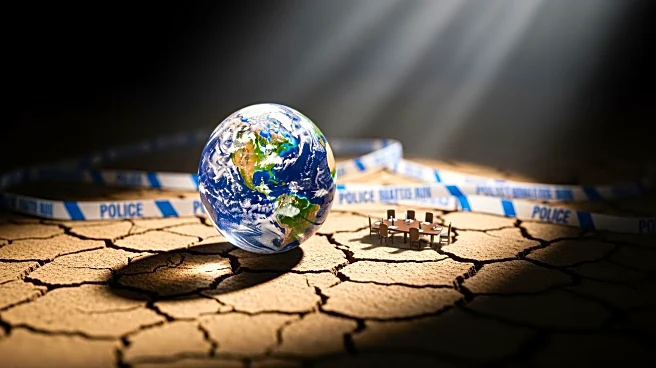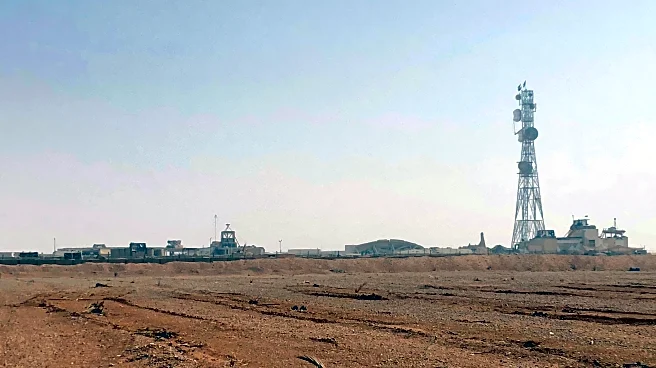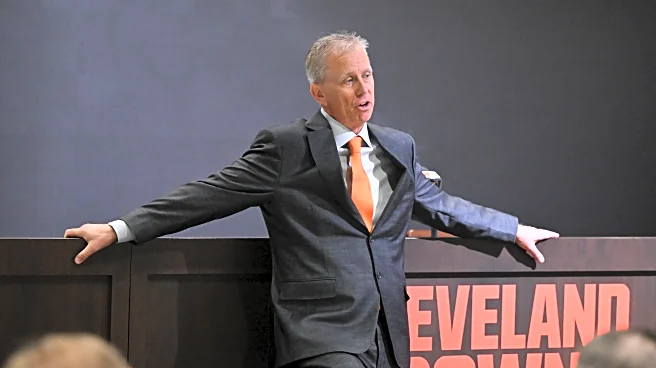What's Happening?
A United Nations report reveals that current global climate pledges are insufficient to meet the goals of the Paris Climate Agreement. Despite some progress in clean energy transitions, the world is on track
for a temperature rise of 2.3 to 2.5 degrees Celsius above pre-industrial levels by the end of the century. This exceeds the Paris Agreement's target of limiting warming to between 1.5 and 2 degrees Celsius. The report highlights that while some indicators, such as renewable energy and electric vehicles, are improving, they are not advancing quickly enough. The upcoming COP30 climate talks in Brazil will address these issues.
Why It's Important?
The findings underscore the urgent need for accelerated climate action to prevent catastrophic environmental and economic impacts. Rising temperatures could lead to more severe weather events, disproportionately affecting vulnerable populations and causing significant economic damage globally. The report emphasizes the role of major emitters, including the United States, in achieving climate goals. The U.S. has faced setbacks due to policy reversals under the Trump administration, which could result in additional emissions. However, state and local leaders are committed to advancing climate goals, representing a significant portion of the U.S. population and economic output.
What's Next?
The COP30 climate talks will be a critical platform for countries to update their emission-reduction plans. With only a third of countries having submitted new plans, there is a pressing need for more comprehensive commitments. The U.S. will have a substantial presence at the talks, with state and local leaders advocating for continued climate action. The outcome of these discussions could influence global climate policy and determine the effectiveness of future efforts to mitigate climate change.
Beyond the Headlines
The report highlights the complexity of global climate governance and the challenges of aligning national policies with international goals. The disparity between pledges and actions raises questions about accountability and the effectiveness of current frameworks. The role of non-state actors, such as cities and businesses, is increasingly important in driving climate action. Their involvement could bridge gaps left by national governments and foster innovative solutions. The report also underscores the need for transparent and measurable commitments to ensure progress towards climate goals.











